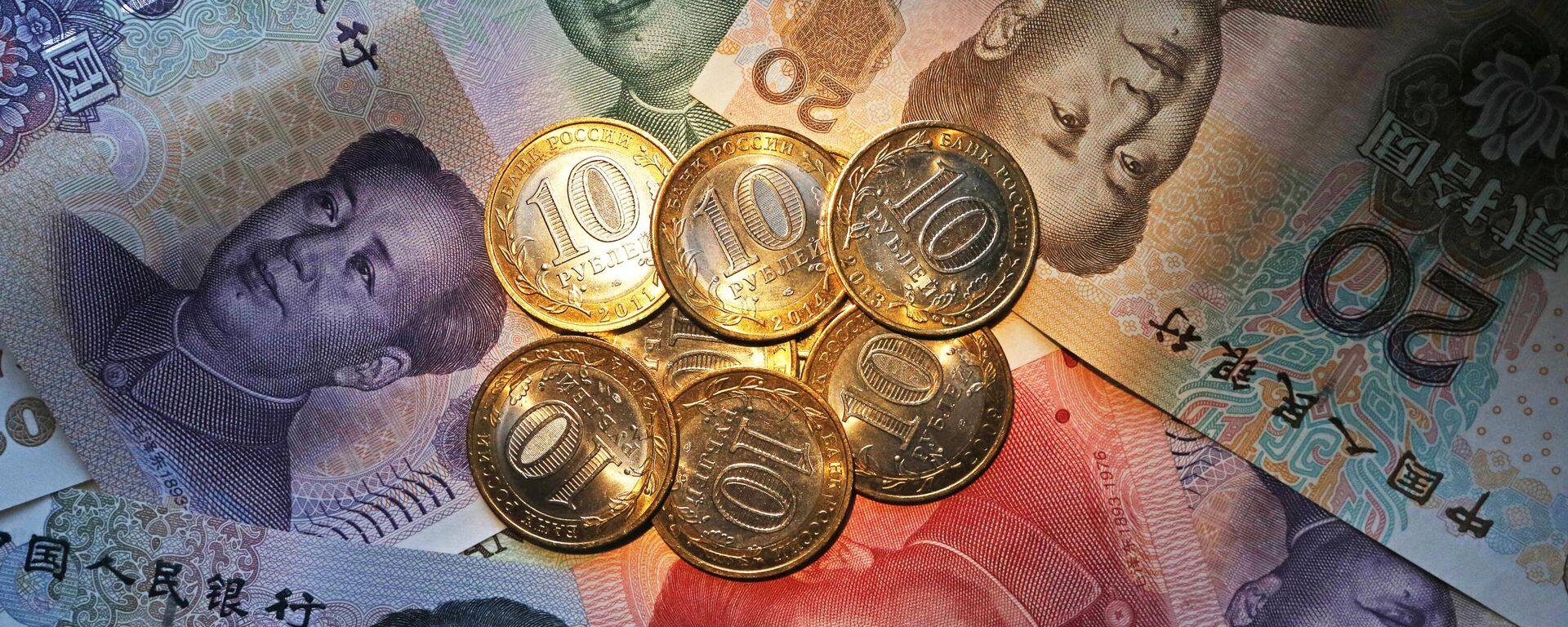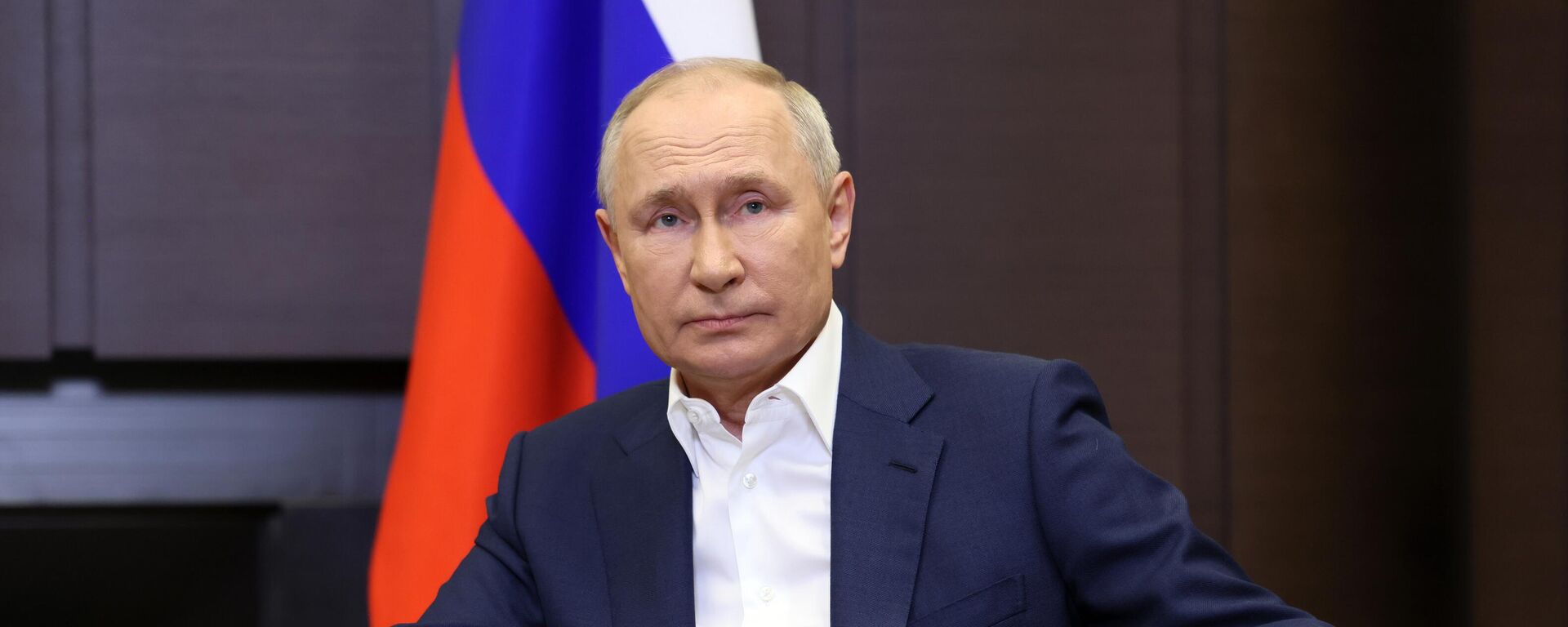https://sputnikglobe.com/20231024/developing-asian-economies-may-import-up-to-60-of-global-crude-oil-by-2050---iea-1114451581.html
Developing Asian Economies May Import Up to 60% of Global Crude Oil by 2050 - IEA
Developing Asian Economies May Import Up to 60% of Global Crude Oil by 2050 - IEA
Sputnik International
Developing Asian countries may account for up to 60% of global crude oil imports by 2050, the International Energy Agency (IEA) said on Tuesday.
2023-10-24T12:36+0000
2023-10-24T12:36+0000
2023-10-24T12:43+0000
economy
international energy agency (iea)
china
crude oil
https://cdn1.img.sputnikglobe.com/img/105155/29/1051552979_0:4:3750:2113_1920x0_80_0_0_60344f27d8b84cc73b942d6022c610b7.jpg
"Emerging market and developing economies in Asia currently account for just over 40% of global crude oil imports. More robust demand and limited domestic production potential cause this share to rise to 45–60% in 2050 in all scenarios," the IEA said in a fresh World Energy Outlook report. The Middle East will remain the largest supplier of crude oil to Asian countries. The share of exports from North America, Latin America and the Caribbean will increase from 23% to 30% in 2050. There is a possibility that oil refining capacity will increase within the next few years, primarily in developing economies of Asia and the Middle East; however, this may become the last wave of capacity boost, as the IEA expects only moderate increase of oil refining capacity from 2030 onward. Transport fuels will most likely cease to be a key driver of demand growth in oil refining, with the share of gasoline in total demand expected to fall to 17% from 25% in 2050, the report said.Decline in EU Gas Consumption Natural gas demand in the European Union may drop to 305 billion cubic meters (bcm) by 2030, that is by 15% compared to the 2022 consumption, the International Energy Agency (IEA) said on Tuesday."The European Union reduced its natural gas demand by an historic 55 bcm in 2022, equivalent to 13% of total demand in 2021. In the STEPS [Stated Policies Scenario], continued efforts to decrease demand yield a further 50 bcm reduction by 2030," the IEA said in its fresh World Energy Outlook report.Natural gas demand in the EU was 413 bcm in 2021, decreased to 358 bcm in 2022 and could amount to 305 bcm in 2030. World gas demand may increase by 140 bcm from 4.159 trillion cubic meters (tcm) in 2022 to 4.299 tcm in 2030, according to a table."In the STEPS, natural gas demand growth between 2022 and 2030 is much lower than the 2.2% average rate of growth seen between 2010 and 2021. It reaches a peak by 2030, maintaining a long plateau before gradually declining by around 100 bcm by 2050," the report said.A retreat from record high natural gas prices in Europe did not lead to an increase in gas consumption in industry, according to the report.
https://sputnikglobe.com/20231018/burgeoning-russia-china-trade-shiny-spot-amid-gloom-in-global-economy-1114295637.html
https://sputnikglobe.com/20231011/eu-economy-stagnating-as-bloc-tries-to-abandon-russian-energy---putin-1114095156.html
china
Sputnik International
feedback@sputniknews.com
+74956456601
MIA „Rosiya Segodnya“
2023
Sputnik International
feedback@sputniknews.com
+74956456601
MIA „Rosiya Segodnya“
News
en_EN
Sputnik International
feedback@sputniknews.com
+74956456601
MIA „Rosiya Segodnya“
Sputnik International
feedback@sputniknews.com
+74956456601
MIA „Rosiya Segodnya“
crude oil inports, chinese economy, asia oil, asian economies, global south
crude oil inports, chinese economy, asia oil, asian economies, global south
Developing Asian Economies May Import Up to 60% of Global Crude Oil by 2050 - IEA
12:36 GMT 24.10.2023 (Updated: 12:43 GMT 24.10.2023) MOSCOW (Sputnik) - Developing Asian countries may account for up to 60% of global crude oil imports by 2050, the International Energy Agency (IEA) said on Tuesday.
"Emerging market and developing economies in Asia currently account for just over 40% of global crude oil imports. More robust demand and limited domestic production potential cause this share to rise to 45–60% in 2050 in all scenarios," the IEA said in a fresh World Energy Outlook report.

18 October 2023, 16:43 GMT
The Middle East will remain the largest supplier of crude oil to Asian countries. The share of exports from North America, Latin America and the Caribbean will increase from 23% to 30% in 2050.
There is a possibility that oil refining capacity will increase within the next few years, primarily in developing economies of Asia and the Middle East; however, this may become the last wave of capacity boost, as the IEA expects only moderate increase of oil refining capacity from 2030 onward. Transport fuels will most likely cease to be a key driver of demand growth in oil refining, with the share of gasoline in total demand expected to fall to 17% from 25% in 2050, the report said.
Decline in EU Gas Consumption
Natural gas demand in the European Union may drop to 305 billion cubic meters (bcm) by 2030, that is by 15% compared to the 2022 consumption, the International Energy Agency (IEA) said on Tuesday.
"The European Union reduced its natural gas demand by an historic 55 bcm in 2022, equivalent to 13% of total demand in 2021. In the STEPS [Stated Policies Scenario], continued efforts to decrease demand yield a further 50 bcm reduction by 2030," the IEA said in its fresh World Energy Outlook report.

11 October 2023, 12:28 GMT
Natural gas demand in the EU was 413 bcm in 2021, decreased to 358 bcm in 2022 and could amount to 305 bcm in 2030. World gas demand may increase by 140 bcm from 4.159 trillion cubic meters (tcm) in 2022 to 4.299 tcm in 2030, according to a table.
"In the STEPS, natural gas demand growth between 2022 and 2030 is much lower than the 2.2% average rate of growth seen between 2010 and 2021. It reaches a peak by 2030, maintaining a long plateau before gradually declining by around 100 bcm by 2050," the report said.
A retreat from record high natural gas prices in Europe did not lead to an increase in gas consumption in industry, according to the report.






